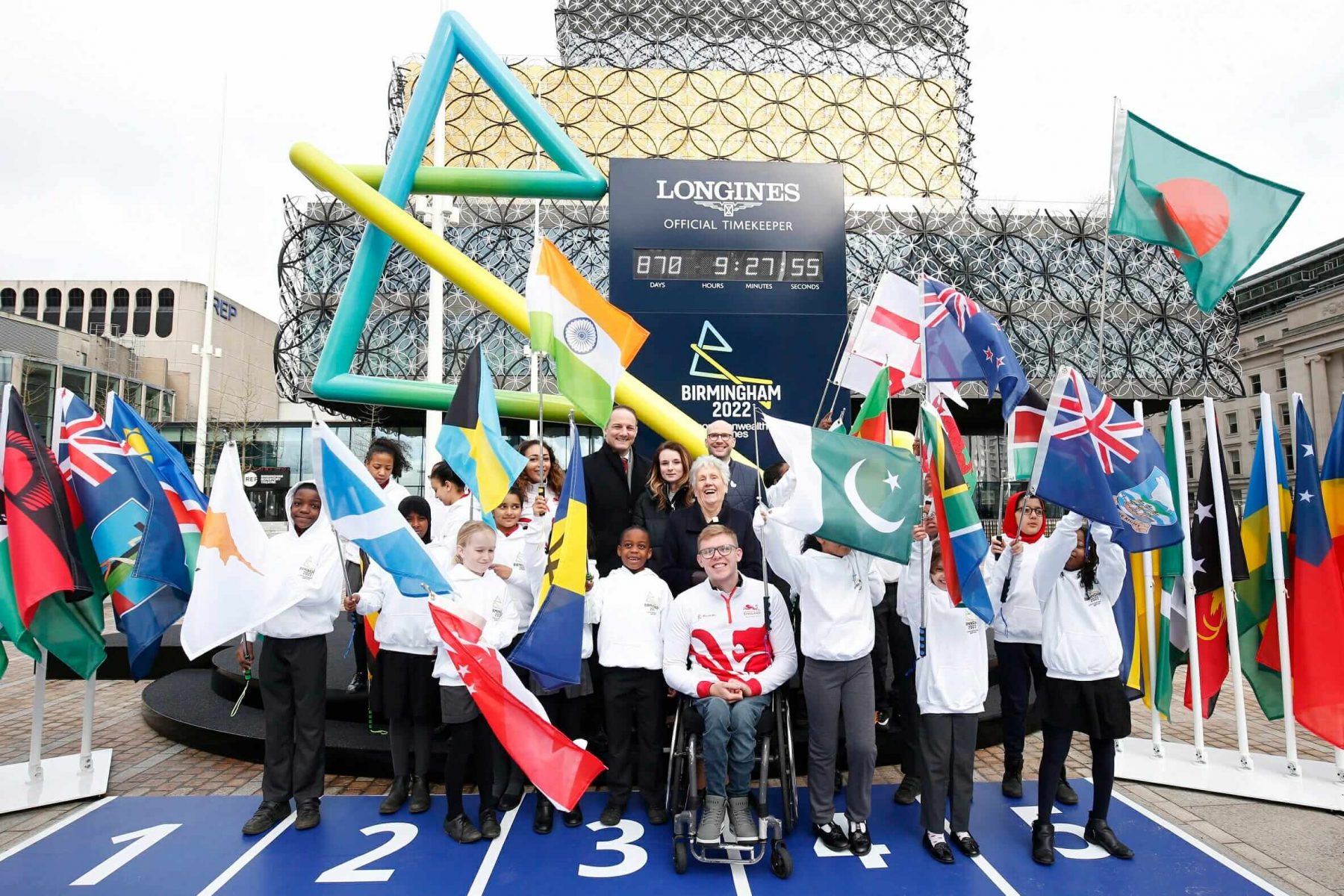What Impact will the Birmingham Commonwealth Games have on the City?

As the Commonwealth Games 2022 fast approaches, Birmingham has undergone significant investment in preparation for taking the global stage. Between July 28 and August 08, the city will host numerous sporting events across 14 competition venues around the region. It is undoubtably the biggest event to come to the West Midlands and the largest sporting event in the UK since the London Olympic Games of 2012.
Historically, cities hosting the Games experience tremendous economic benefits both during and long after the event. So, as the opening ceremony approaches, we explore how Birmingham’s Commonwealth Games and its legacy will impact the city and its residents.
The Commonwealth Games Effect
Birmingham’s Commonwealth Games will undoubtably have a massive impact on the city and its economy. Hosting duties will elevate Birmingham to the world stage with the games set to attract an estimated 1 million spectators to the city and a TV audience of 1.5 billion globally over the coming weeks, but the benefits reach far wider than that.
The Commonwealth Games Value Framework report studied the economic impact of previous games on their respective host cities between 2002 and 2018, finding that there has been an economic increase of at least £1 billion for each previous host city, as well as an abundance of long-term social and environmental benefits.
The report also revealed that hosting the Commonwealth Games has led to increases in tourism of up to 25% in the three years after hosting, as well as Commonwealth trade deals and investments of up to £400 million.
Glasgow hosted the Commonwealth Games in 2014, and in the seven years prior, preparation for and delivery of the Games is estimated to have contributed £740 million to Scotland’s GVA, £390 million of which was Glasgow’s GVA alone.
Similarly, when Manchester hosted the Commonwealth Games in 2002, the city attracted a regional record of 85 million visitors during the year and helped to bring in more than £2bn in tourist revenue according to a study, which was an increase of 19% from the previous year.
Hosting the Commonwealth Games undeniably put both Glasgow and Greater Manchester on the map, with both cities developing into popular tourist hotspots that continue to attract millions of visitors each year.
But this is just the tip of the iceberg. With the announcement of Birmingham as the host of the Commonwealth Games 2022 came significant changes to the city.
Birmingham Commonwealth Games and Regeneration
Like Manchester and Glasgow before it, the Birmingham Commonwealth Games has acted as a catalyst for both direct and indirect investment, with extensive regeneration schemes well underway across the city. It is this regeneration which fueled the increase in tourism and GVA of previous hosts.
The Games has also been instrumental in accelerating key infrastructure upgrades including several road improvement schemes, quicker bus routes offering faster commutes to key venues and areas of the city, an extended tram network, more cycle routes and an extensive cycle hire scheme, plus much, much more.
£25 million worth of city centre projects have been underway with the aim of revitalising the city centre by renewing public spaces – including the iconic “Floozy in the Jacuzzi”; improving security measures at 19 city centre locations and increasing pedestrian access.
As well as these citywide enhancements, an impressive £778 million of public funding has been pumped into delivering world class sport and venues across Birmingham which, once the Commonwealth Games has finished, will provide lasting benefits for the local area and its residents. Most notably, £72 million worth of redevelopment has taken place on Perry Bar’s Alexander Stadium as it prepares to host the opening and closing ceremonies as well as act as an anchor for the Birmingham Commonwealth Games.
An additional £500 million of investment dedicated into improving roads, accessibility and cycling routes in the area surrounding the stadium and delivering an estimated 5,000 new homes, transforming Perry Bar into a highly desirable and liveable part of Birmingham as well as improve the efficiency of transport with the city centre.
Future Investment
Like Birmingham, Manchester underwent substantial investment before hosting the Commonwealth Games, and it has continued to reap the benefits of their hosting duties over a decade later. In fact, it is estimated that external investment into Manchester’s city centre and the surrounding areas has increased tenfold since the Games were hosted there.
In 2014, nearly 12 years after hosting the Commonwealth Games, the Abu Dhabi United Group formed a £1 billion ‘commercial venture’ with the council to regenerate East Manchester, driven by the city’s increased economic stance and newfound tourist hotspot status that stemmed from hosting the Games.
As well as subsequent investments into the city, Manchester’s cultural and entertainment scene also continues to benefit from the games. In preparation for the Games, the City Manchester Stadium – now known as the Etihad Stadium – was built. It opened as the main athletics arena for the games and has since gone on to host subsequent major sporting events such as the UEFA Cup Final, top flight boxing matches and rugby league international games. It also doubles as a major concert venue for the city, becoming a staple destination for both UK and international music tours.
This sets the precedent for an ongoing ripple effect of future investment that will boost Birmingham for many years to come, securing its place as one of the best places to buy property in the UK. With both the newly built Sandwell Aquatics Centre and refurbished Alexander Stadium opening for community use after the games – Alexander Stadium becoming the largest athletics ground in the UK – the benefits for local residents will be felt for years to come.
What Does This Mean for Birmingham Property
Birmingham already has a strong basis for attracting first-time homebuyers and demand for property in Birmingham is already at an all-time high, which acts as a fantastic indicator for how well the property market will perform in the near future.
Known as the UK’s second city – and for good reason – Birmingham already boasts some of the UK’s most iconic entertainment venues, such as Symphony Hall, Utilita Arena and the National Exhibition Centre (NEC) – which is the largest event space in the UK – and hosts numerous iconic festivals and events around the city every year.
In additional to this, the city has a hugely significant cultural scene, ample employment opportunities and unrivalled connectivity to the rest of the UK. In fact, the city was recently included as one of the “Best Places to Live” in the UK by The Sunday Times’ annual guide. Find out more about what it’s like in Birmingham in our area guide, here.
Historically, the property market in host cities has benefitted greatly from both the Commonwealth Games and the urban regeneration that comes with it, as it showcases everything the city has to offer. With improved transport links, enhancements to social and leisure spaces for residents, increased employment opportunities as well as stimulating future investment projects, Birmingham will be no different.
Demand for property – city centre apartments in particular – is likely to increase further and Birmingham property prices will continue to rise. A JLL Consultancy report predicts that the average property price in Birmingham will grow by 4.9% per year in the next 5 years – an increase of 27% by 2026 – citing the 2022 Commonwealth Games as a key driving force behind this growth.
Land Registry data demonstrates the growth in property prices Manchester experienced around the time of its 2002 Commonwealth Games. The data shows that the average house price increased by 63% in the five years leading up to the games, but this growth skyrocketed to 140% in the five years after.
Glasgow saw a similar property price boom, with the property market seeing 8.6% decrease in prices in the 5 years before the games compared to 27% increase in the five years after the Commonwealth Games. Whilst Glasgow experienced a narrower margin of growth than Manchester, this still sets a clear precedent for what Birmingham’s property market has in store in the coming years.
Property for Sale in Birmingham
With so much attracting homebuyers to the city and property values likely to increase considerably in the wake of the games, there’s never been a better time to buy property in Birmingham.
SevenCapital proudly presents two property developments in the heart of Birmingham, offering high-spec 2-bedroom apartments just minutes from the bustling centre and a multitude of attractions.
St. Martin’s Place is the first property development to bring hotel-style services to the residential sector. Having nearly sold-out before it’s completion, find out more and enquire now to avoid missing out on the remaining apartments.
Situated just a stone’s throw away from St. Martin’s Place is 105 Broad Street, another property development by SevenCapital offering 2-bedroom apartments for sale. Both developments provide the ideal location for working professionals who want easy access to the city centre as well as high-end city living.





